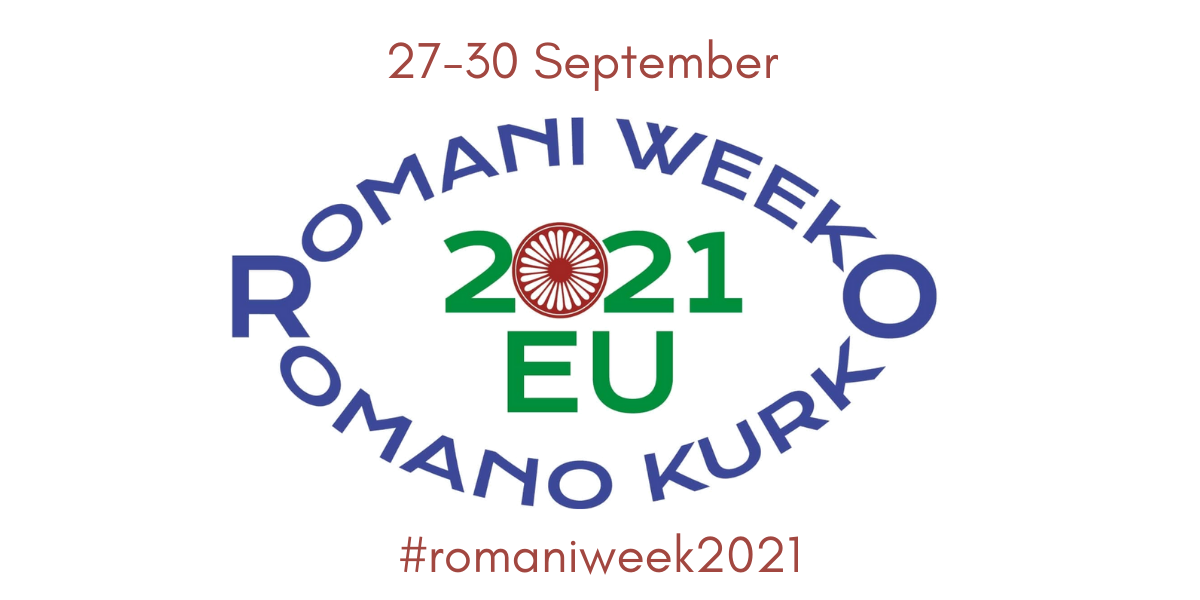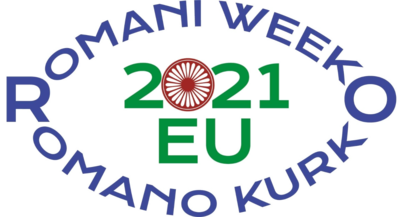Looking back at the Romani Week 2021
For the first time, due to the ongoing pandemic, Romani week was postponed from early spring this year to an online version organized from 27 to 30 September. As a platform to raise concerns, but also exchange knowledge between policymakers, experts, activists and organizations, the event focused on debating post 2020 EU policies for Romani inclusion, advocating for specific subjects covering areas such as health, education, employment, online hate speech, environmental justice; and offerin specific recommendations on combatting antigypsyism, on the effectiveness of the post 2020 EU policies for Romani people, as well as on the national recovery and resilience plans.
ERGO Network was once again a proud co-organizer and partner to this edition of the Romani week, under the patronage of the European Parliament, European Commission and the Council of the European Union and its MEP hosts: Romeo Franz, Peter Pollák, Terry Reintke, Cornelia Ernst, Pierrette Herzberger-Fofana, Tomáš Zdechovský, Evin Incir, Rasmus Andresen, Anna Júlia Donáth, Dragoș Pîslaru and Sergey Lagodinsky.
ERGO’s participation started on 27 September with the speech of director Gabriela Hrabanova at the kick-off event Equality, Inclusion and Participation of Romani People by Law, highlighting that […] one of the ways forward is to have in place legislation […] having a specific directive, it increases chances to punish also specific forms of antigypsyism […].
Are the online platforms safe for Roma? – was the title of the second event during that day. Knowing that online hate speech has been steadily on the rise during the past decade, especially during the on-going Covid-19 pandemic, the event fostered a debate which led to identifying positive solutions, policy proposals, as well as advocacy points relevant for further addressing the new challenges arisen during the current pandemic that present new obstacles for a better inclusion of Roma in society. The event was hosted by MEP Pierrette Herzberger Fofana and co-organized by ERGO Network, Fundación Secretariado Gitano (FSG), European Roma Rights Centre (ERRC), and International Network Against Cyber Hate (INACH) as part of our common efforts of to tackle antigypsyist online hate speech.
The fight against institutional antigypsyism is for the first time at the centre of the new EU Roma Framework, marking the important shift in policy development approach on Roma inclusion at EU and national level. The second co-organized event by ERGO Network, together with the Central Council of German Sinti and Roma, European Roma Rights Centre, Roma Active Albania, Phiren Amenca and Equinet called Adopting National Roma Strategic Frameworks 2021 – 2030 – built on the results of the EU Platform for Roma Inclusion taking place on 21-22 September 2021 and used the results to inform about the follow-up steps by the European Commission in providing guidelines to Member States and the Enlargement region and of the civil society and other key stakeholders in the implementation and monitoring of the national Roma strategic frameworks.
The conference Addressing environmental justice in Roma communities – co-organized by ERGO Network in cooperation with the European Environmental Bureau and the European Public Health Alliance on 29 September focused on awareness raising of environmental determinants of health, such as environmental discrimination against Roma communities and its impact on health to set the issue on the European and national political agenda.
ERGO’s member Roma Active Albania co-organized and implemented the EU Award for Roma Integration in the Western Balkans and Turkey, 2021 which is supported by the European Union. The award ceremony Extraordinary People Promoting Equality through Employment – as this year the emphasize was on the importance of Roma employment, as a mechanism to break the circle of exclusion, was organized live in Brussels in the Concert Noble venue on 29 September in the afternoon (read more here).
Making EU funding & finance work for Roma – was the last event co-organized by ERGO Network on the 30th of September. The very insightful event informed about different EU funds and programmes available for Roma inclusion and showcasing examples of partnership´ alliances for the efficient use of EU funds, including the example of Community-Led Local Development presented by ERGO Network member Daniel Grebeldinger from Nevo Parudimos, Romania.
Meeting during this Romani week online was truly unusual; however, it did not change the objectives of this event. More than ever, actions need to follow the words spoken those days online. Recognition of antigypsyism must be strengthened at national level as well as real political will to combat it. We now need strong cooperation between stakeholders for an effective implementation of the EU Roma Strategic Framework. Only together, we can develop strategic and coherent responses to help the Romani communities across Europe.








 The project “New solutions to old problems – exchange of new type of approaches in the field of Roma integration” is funded by Iceland, Liechtenstein and Norway through the EEA and Norway Grants Fund for Regional Cooperation.
The project “New solutions to old problems – exchange of new type of approaches in the field of Roma integration” is funded by Iceland, Liechtenstein and Norway through the EEA and Norway Grants Fund for Regional Cooperation.
